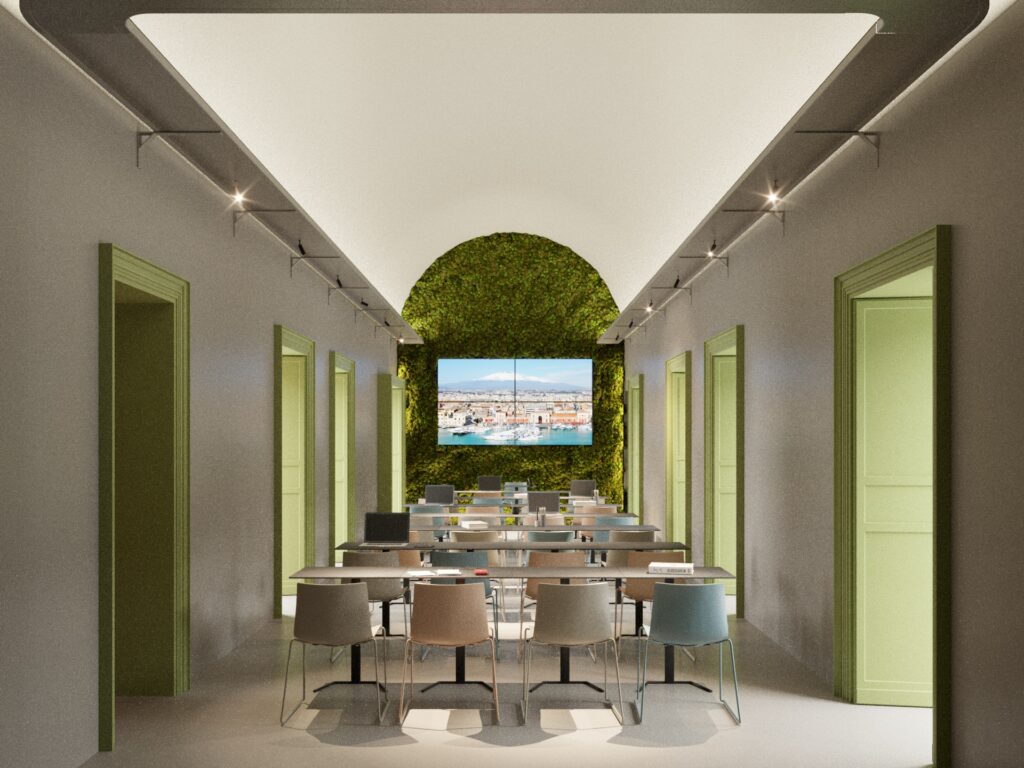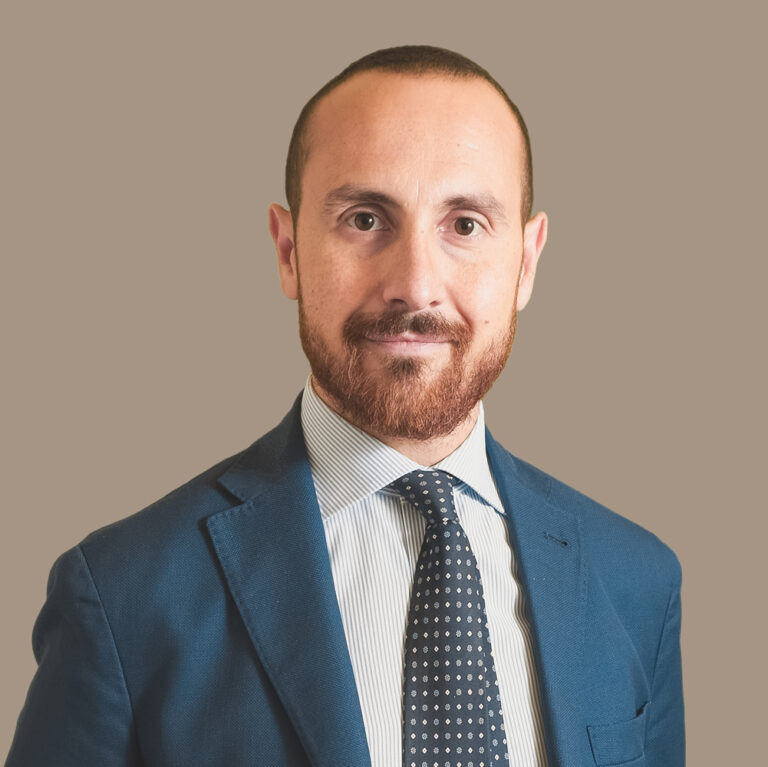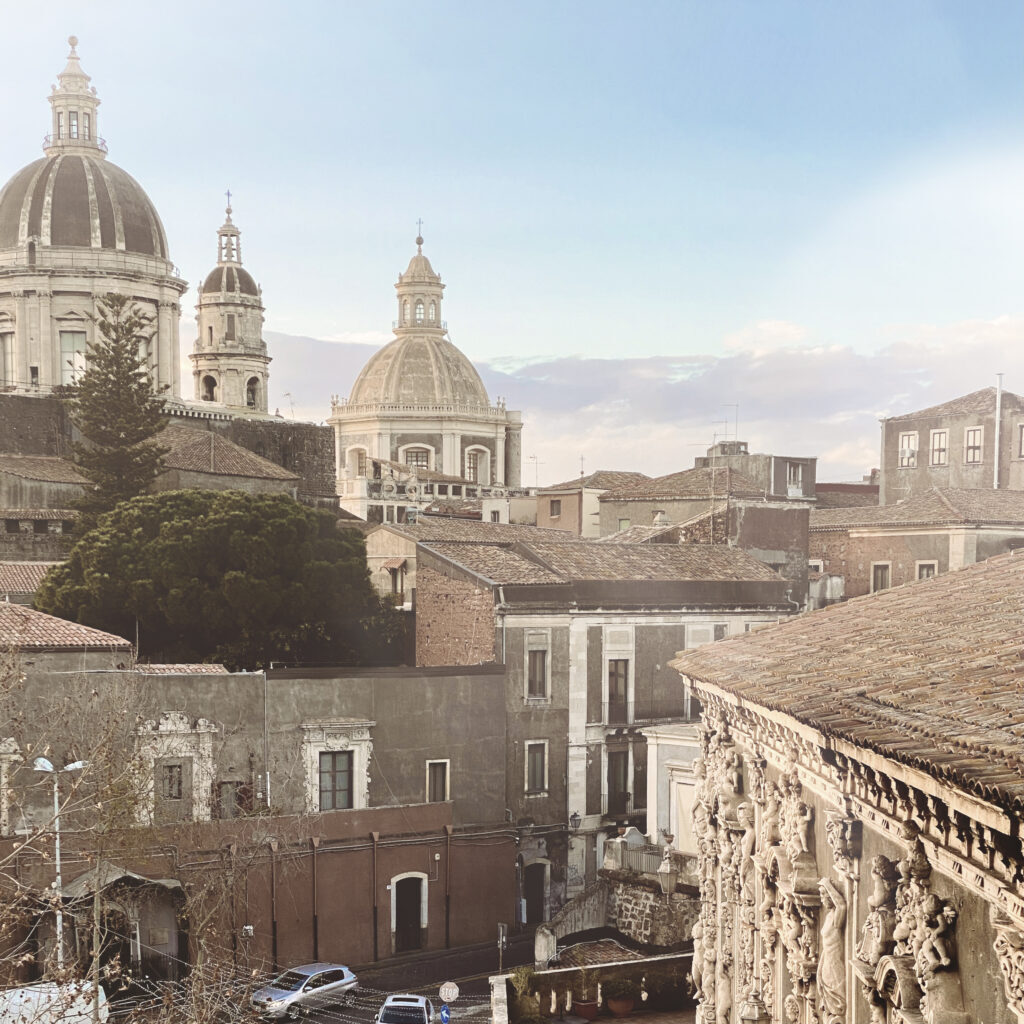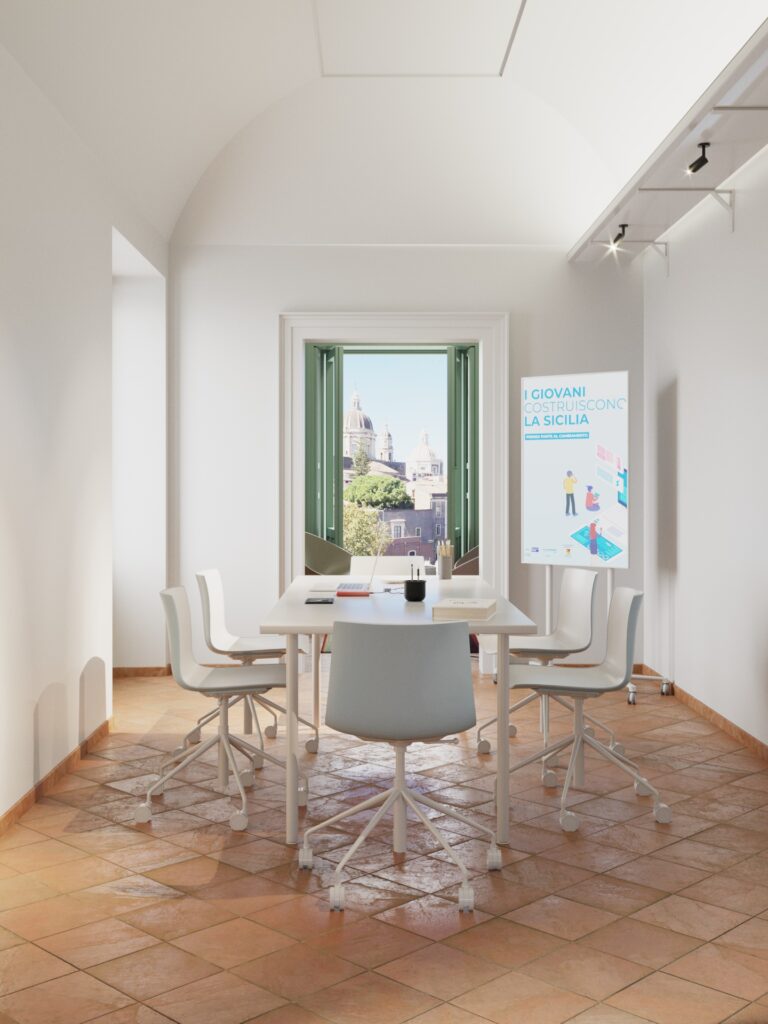“Isola”,
the hub
where old
and new meet
Among the neologisms born in recent years, no doubt “onlife”, created in 2017 by the philosopher Luciano Floridi combining the words “online” and “offline”, is the one that more in recent months has taken on new and delicate nuances. In a world constrained only by digital interactions, the desire to integrate our daily life to 2.0 connections appears as a sort of light at the end of the tunnel, redesigning boundaries and possibilities. Thus, can a working environment become the ideal meeting place between human and digital contacts? It’s one of the most asked questions about the future of co-working spaces, increased before the Covid-19 and that suddenly have been emptied due to the reduction of interactions with the others. According to Antonio Perdichizzi, class of 1978, founder of Tree (company specialized in open innovation and recently acquired by the group Opinno) and president of Junior Achievement Italia (non-profit in the field of economic-entrepreneurial education), it will be possible to rebuild a new post-pandemic normality. Perdichizzi’s investements involve also Arcadia, a holding company that has participations in innovative projects such as Orange Fiber (producer of fine fabrics from the scraps of processing oranges) and partner of Invitalia and CDP Venture Capital.

Perdichizzi created one of his most ambitious projects with Arcadia. That is, “Isola”, a co-working space and a multi-stakeholder project that comes to life in one of the most important historical places of Catania: the monumental palazzo Biscari. “We’ve always imagined ‒ he said ‒ that there may be a way to make Southern Italy an ideal environment for major investments. Today the presence of both tax benefits for the South and smartworking represent an extraordinary opportunity”.

INNOVATION SET IN BAROQUE. In 1693, following one of the most destructive earthquakes occurred in Sicily, the prince Ignazio Paternò Castello commissioned an imposing palace on the walls built during Carlo V era. It was extended by successive generations and completed in 1763. The palace has always been considered one of the most important places in the city, so that its magnitude was described by Goethe in 1787, during his travel to Sicily. In the contemporary era, if the main part of the Palace has become the set of important conferences and movie and music sets, other parts hosted the most disparate activities, such as the offices of Teatro Stabile, losing in part its coherence in the details with not always excellent conservation conditions today. “Isola” aims to rebuild this identity, renting the premises and proposing a restructuring operation that also includes its modernization. “We commissioned it to the Sicilian company Analogique ‒ Perdichizzi told ‒ and specialized companies for the design and the realization of state-of-the-art technological systems have been involved. In order not to spoil the palace, we made a sort of hi-tech duct, an engineering work that leads wireless Internet and air conditioning to the various rooms”. The 35 “Isola” areas have, on the one hand, some conference rooms (the biggest named “Sicily” and “Malta”) for training events, but also talks and aperitifs, and on the other, a series of smaller rooms, equipped as recording studios, phone boots, online and “onlife” meeting set. “This place ‒ Perdichizzi added ‒ will also be the headquarters of the Tree School, where 1,000 programmers can work, immersed in beauty”. A choice in a sense going against the idea of “neutral” and aseptic places, that often characterize the technological campuses on the outskirts of cities and in its urban location finds its sense according to the creator’s intentions.

DIALOGUE WITH THE NEIGHBORHOOD. The city of Catania, from the urban point of view, is rich in contrasts. Walking through the center you realize that noble and popular palaces coexist a few steps from each other. In this sense, the location of Palazzo Biscari, located halfway between the central piazza Duomo and the neighborhood called Civita, is no exception. “Isola ‒ Perdichizzi added ‒ overlooks piazza Duca di Genova, which today looks like a parking lot, but it actually has great potential. I wish that with public and private synergy it can be requalified. We, for example, would like to ask the city for the possibility of taking flower beds. I imagine it as a digital and connected place, attractive for young people”. However, the dialogue with the city called for by Perdichizzi doesn’t stop outside of “Isola” but it involves above all its inside . “We don’t want this place to be elitist and intended only for those who can afford a desk. We’ll set up some calls that I hope will be received by the neighborhood, inviting those with ideas to come and work with us for three months free of charge. Because innovation doesn’t include only those who already have a startup”.

CAN WE REALLY MAKE SYSTEM? Therefore, the “Isola” project focuses on synergies, imagining to involve about fifty startups and projects. A courageous choice in a context that until now has seen an almost endogenous resistance to system initiatives. However, for the entrepreneur from Catania things can really change by now. “It may seem a cliché, but the point is that you need to think new models to do business and they cannot disregard the collaboration with others. Even politics is teaching us that no one can rule today without taking into account different and distant forces. Similarly, I think that a multi-stakeholder project like this must start from the awareness that before asking you should give. “Isola” will make available what it has, then, those who will really feel it as a project of their own, will adhere in the spirit of contributing in their turn”.
Translated by Daniela Marsala



